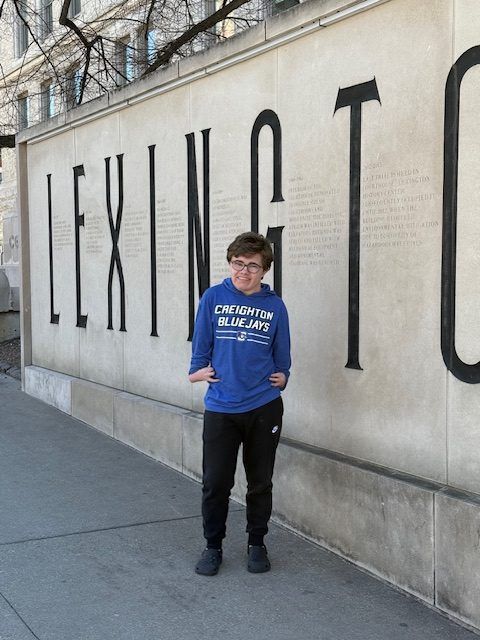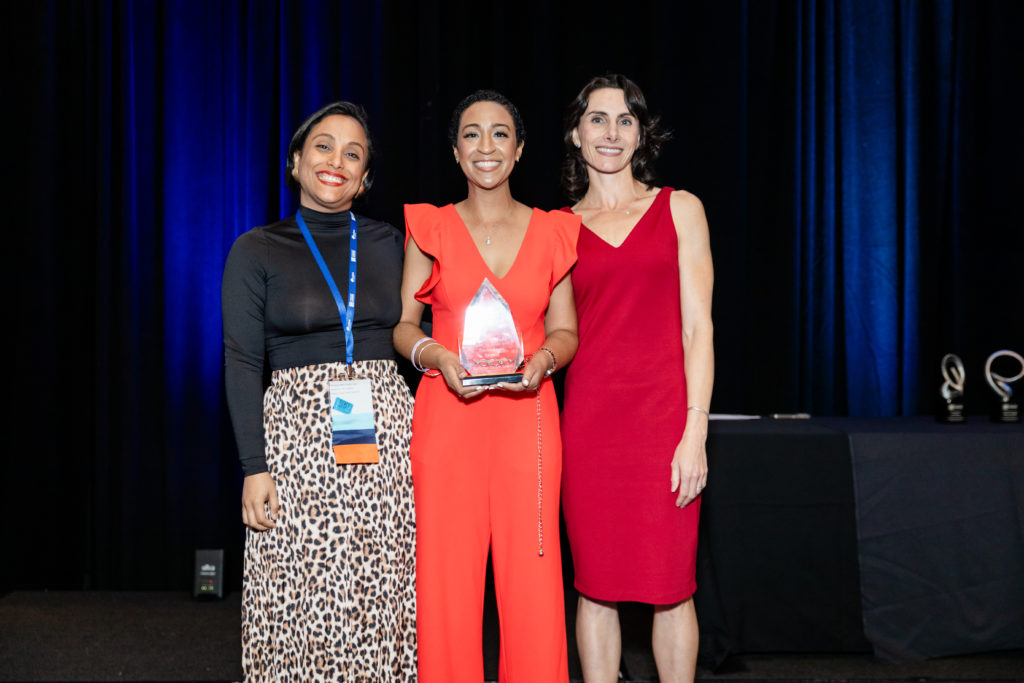In 2022, the Fanconi Anemia Research Fund moved full steam ahead with research priorities. Notably, we invested over $3 million into new and ongoing research efforts, with a major focus on cancer through the development of the FA Cancer Consortium. In addition, we held three focus meetings and returned to our in-person Scientific Symposium. Finally, we continued to develop the FA Research Materials repository and support clinical programs like the FA Patient Registry and Virtual Tumor Board.
Below is a recap on the research initiatives made possible in 2022 thanks to our incredible donors, fundraisers, and dedicated researchers. You will read about newly funded projects, scientific events, and clinical programs and initiatives.
New Projects Awarded in 2022
Fanconi Anemia Cancer Consortium (FACC)
The mission of the Fanconi Anemia Cancer Consortium is to drive scientific research on FA cancers and enable all people with FA to have access to accurate cancer diagnosis and therapy. To accomplish this mission, the FACC will:
- Provide the infrastructure and resources needed to drive cancer research.
- Offer the best practice care to prevent and treat FA cancers.
- Make resources and data freely accessible to the FA research, patient, and cancer research communities.
The FACC is a collaborative partnership between the FA community and a network of expert FA clinicians and physician scientists who have expertise and experience in the diagnosis and management of FA cancers and FA cancer research. This coalition will involve international collaborators working to establish a comprehensive patient care strategy for FA cancer.
Seven new projects were funded in 2022 within the FA Cancer Consortium
NIH CENTER COMPREHENSIVE PROGRAM FOR NATURAL HISTORY OF DEVELOPMENT OF SQUAMOUS CELL CARCINOMA IN FANCONI ANEMIA
Neelam Giri, MD, and Sharon Savage, MD
National Cancer Institute
People with Fanconi anemia have an extremely high risk of developing squamous cell cancers of the oral cavity, vulva, anal area, and esophagus. The risk of these cancers starts around teen years and increases throughout life with the highest risk for oral cavity cancers in ages 20s to 30s. Oral cavity cancers arise in areas of changes visible as white or red spots. Researchers plan to screen teens and adults with FA for cancers at regular intervals and study the visible spots to identify early changes before progression to cancer. This will help in designing treatments to prevent the development or progression to cancer. People with concerning changes or cancer will be discussed at the tumor board in coordination with FARF and referred for treatment at NIH or elsewhere. Regular screenings and early treatment will offer better chances of cure, will have fewer side effects and result in better quality of life.
CYTOLOGY BASED DNA ANALYSIS TO INVESTIGATE THE MALIGNANT POTENTIAL OF ORAL LESIONS IN PATIENTS WITH FANCONI ANEMIA
Martial Guillaud, PhD, and Denise Laronde, PhD
BC Cancer Research Institute
Researchers will run samples collected by brushing lesions through an automated system to detect abnormal DNA content and malignant changes. By identifying high-risk lesions, closer follow-up and early intervention can be used to prevent malignancies. The goal is to establish a centralized lab at BC Cancer to process samples to identify the risk of malignant transformation for FA patients.
BUILDING COLLABORATIVE PARTNERSHIPS TO UNDERSTAND FANCONI ANEMIA TUMOR PATHOGENESIS, PREVENTION, AND TREATMENT
Agata Smogorzewska, MD, PhD
The Rockefeller University
This team will facilitate collaborations between all current and future participants of the FACC. The goal is to gather information and samples from past, present, and future patients to fully understand how tumors develop in FA patients and facilitate new prevention and treatment strategies. This teams envisions a world where every tumor from every FA patient is studied and collectively contributes to eradicating cancer.
DEVELOPMENT AND CHARACTERIZATION OF FA-HNSCC PDX MODELS
Jennifer Grandis, MD, and Daniel Johnson, PhD
University of California, San Francisco
Investigators helped pioneer the creation of patient-derived xenografts (PDXs – tumors from patients that are grown in mice) from head and neck cancers. They have now developed the first PDX from a head and neck cancer in an FA patient. Researchers will work to develop a collection of PDXs from head and neck cancers in FA patients to guide cancer treatment.
ORAL MUCOSAL GENE THERAPY AS A PREVENTION FOR FA-ASSOCIATED CANCERS
Ray Monnat, MD, and Markus Grompe, MD
University of Washington and Oregon Health and Science University
The goal of this project is to determine the potential of oral mucosal (lining) gene therapy to lessen the risk for oral cancer in individuals with FA.
MODELING ENVIRONMENTAL RESPONSES OF FANCONI ANEMIA EPITHELIAL STEM AND PROGENITOR CELLS TO PREVENT SQUAMOUS CELL CARCINOMA
Ken Weinberg, MD, Frank Ondrey, MD, and Hiro Nakagawa, MD, PhD Stanford University, University of Minnesota, and Columbia University
This grant will develop models to better understand cancer in individuals with FA using animal models and organoids (small 3D tissue mass made from stem cells) created from FA patient cancer cells. Developing these models will help researchers better understand the pathways that result in cancer and determine the best prevention and therapeutic strategies to eliminate FA cancers.
*EXTENDED FUNDING* SYNTHETIC LETHAL APPROACHES TO TREATMENT OF FA GENE MUTANT HEAD AND NECK CANCER Barbara Burtness, MD, and Gary Kupfer, MD
Yale University, Georgetown University
Typical treatments for cancer involve conditioning that damages DNA
and can therefore be harmful for people with FA, who cannot repair DNA. Researchers are testing drugs using patient-derived xenografts (tumors from patients that are grown in mice) to find a way to kill FA cells without harming normal cells.
Additionally, we funded two other grants supporting mental health and investigating FA Neurological Syndrome
PSYCHOSOCIAL EXPERIENCES OF ADULTS WITH FANCONI ANEMIA: A PARTICIPATORY MIXED-METHODS RESEARCH STUDY
Kathleen Bogart, PhD, and Megan Voss
Oregon State University and University of Minnesota
Investigators are partnering with members of the FA community to design a first-of-its-kind quality of life study, considering the physical, mental, emotional, and spiritual aspects of living with FA, as well as issues of diversity, equity, and inclusivity. Results of this study will help FARF and clinicians around the world develop ways to improve the mental health of those living with FA.
FANCONI ANEMIA ASSOCIATED NEUROLOGICAL SYNDROME – A SEARCH FOR A CAUSE WITH ADVANCED TECHNOLOGIES
Prashanth Ramachandran, MBBS, and Michael Wilson, MD
University of California, San Francisco
A new and rare condition affecting some FA patients leads to brain lesions, which can cause weakness, seizures, and cognitive issues. The cause of this condition is currently unknown. Investigators plan to closely examine the immune profile in these patients to try and find the underlying cause and an appropriate therapy.
Research Events in 2022
Workshop on the International Brush Biopsy Study
In June, we co-hosted the FA Brush Biopsy International workshop with Dr. Eunike Velleuer and Christine Krieg from FA Germany. The purpose of this meeting was to determine the role of international organizations in implementing the global brush biopsy study with their constituents. This study has proven that oral brush biopsies are 100% accurate in identifying pre-cancerous lesions. Implementation of this study thus leads to earlier diagnoses of cancer, which results in better outcomes for patients.
Workshop on Data Standardization
The FA Cancer Data Standardization and Interoperability workshop was held in October with over 30 attendees, representing 8 countries. The overall goals of this workshop were to discuss creating standards for data collection across the international data landscape, provide information on platforms available to connect the data and build consensus on implementing a global unique identifier for all FA research participants. The information shared will inform ongoing efforts to standardize data in the FA research field. This helps to reduce redundancy and ensure data is shared to help advance research.
Scientific Symposium
The 2022 Annual Scientific Symposium returned to an in-person event, held September 8 to September 11 in Austin, Texas. The purpose of the symposium was to gather prominent and aspiring FA researchers and clinicians together to share the latest updates in research and treatment and to form new collaborations. This year, the event was once again held in tandem with the FA Adult Retreat, giving adults with FA the opportunity to speak with scientists and be more empowered in managing their health.
Joel Walker Cancer Series Meeting
To provide the most effective care for people with FA who have cancer, we need to ensure that therapeutic choices are non-toxic and match each person’s unique tumor characteristics (precision therapy). The 5th annual Joel Walker Cancer Series meeting focused on developing strategies for best practices for precision therapy and creating the infrastructure for a molecular tumor board for FA cancer. Outcomes from the meeting established that FARF will continue to advance and support molecular studies on FA tumors so that we can develop a deeper understanding of FA head and neck cancers. In tandem to that, we will implement the necessary processes for molecular characterization of FA tumors into FARF virtual tumor board evaluations to provide people with FA precision medicine-based recommendations for treatment.
Ongoing Research Programs and Initiatives
Fanconi Anemia Research Materials (FARM)
The FARM is a repository that FARF has had in conjunction with Oregon Health and Science University since 2013. The FARM facilitates FA research by providing materials to investigators free of charge. These materials include antisera and Fanconi cancer cell lines. Cancer cell lines can be created from either human or mouse tissues and grown in a petri dish. If FA researchers can obtain study materials from the FARM, this will help them to conduct their work in a more efficient and timely manner. FA research conducted using FARM materials could result in advancements in potential therapies for FA that individuals with FA could use.
FA Patient Registry focused on FA Cancers
In 2019, FARF and the National Organization for Rare Diseases (NORD) launched a patient registry specifically on Fanconi anemia. The registry consists of patient-directed surveys that collect information about the disease progression and experiences of individuals living with FA. This free and voluntary service helps researchers direct studies that lead to better treatments for FA.
Virtual Tumor Board
The FARF Virtual Tumor Board (VTB) is a panel of physicians from various oncology fields who have experience treating patients with FA. They volunteer to discuss complex FA solid tumor cases and offer treatment guidance.
The VTB was developed to provide support to individuals with FA and their treating physicians, who may have less experience with treating cancer in individuals with FA. The FARF VTB meets virtually with patients’ treating physician(s) to review cases and provide input for treatment from an FA-centric viewpoint.
In 2022, FARF convened 11 tumor boards for FA patients diagnosed with cancer.




